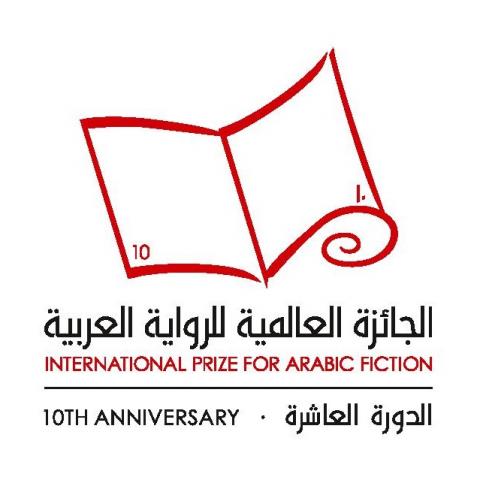The 2017 International Prize for Arabic Fiction winners and shortlisted authors in Abu Dhabi
03/05/2017

The 2017 International Prize for Arabic Fiction shortlisted authors, including the winner Mohammed Hasan Alwan, took part in a number of events in Abu Dhabi before and after the winner announcement last Tuesday.
Emirates Writers’ Union
In the lead up to the announcement, the authors were invited to the Writers’ Union on Sunday April 23 to discuss their novels in a session moderated by writer Salha Obeaid. In the hour long discussion with writers, Obeid focused on the idea upon which each author wrote his/her novel as well as the different techniques they employed. Five of the shortlisted authors were in attendance, as Ismail Fahd Ismail had yet to arrive in Abu Dhabi.

© Khéridine Mabrouk / IPAF
Elias Khoury explained that he integrated the story of Wadah El-Yaman in Children of the Ghetto – My Name is Adam because it emphasized the novel’s themes as well as the reality of Adam, the main character. Meanwhile, Mohammed Hasan Alwan discussed philosophy and Sufism and the relationship between Ibn ’Arabi and Ibn Rushd in relation to his novel A Small Death. Saad Mohamed Rahim responded to concerns that the Iraqi novel has been revolving in the same place since 2013 by elaborating on the importance of this phase and that Iraqi writers are keen to portray the full chaos and pain of it.
Mohamed Abdel Nabi told the audience that In the Spider’s Room, which he spent four years writing, shows how society treats homosexuals and highlights that not all people have to be similar. Finally, Najwa Binshatwan revealed the inspiration behind her novel: a picture she obtained of one of the slaves pens in Libya.
New York University – Abu Dhabi
On Monday, the five authors headed to the New York University – Abu Dhabi where they, along with Bilal Orfali, Associate Professor of Arabic Studies at the American University in Beirut, reflected on the state of Arabic literature in general and their own novels in particular. From the role of literature in the Arab world today as a possible alternative to the turbulent political Arab reality, to whether literature is a tool for propagating or resisting authority, the authors engaged in a lively debate and offered differing opinions. Orfali then delved into the details of each novel before the audience joined the discussion.
Abu Dhabi International Book Fair
The day after the winner announcement, all six authors headed to the Abu Dhabi International Book Fair on its opening day where they took part in the AlMultaqa Book Club and the Sea of Culture Foundation for more discussions and questions from audience members about their novels.
Readers at the Sea of Culture Foundation noted that the one factor that all novels had in common was that they combined historical/real life elements with fiction. Khoury commented on this, “In the Arab world, we feel that the truth is lost. Our world is covered in lies. So, through literature, we try to preserve the truth.” And in order to present these truths, the authors had to conduct a lot of research and infuse their novels with lots of information. While Binshatwan commented on the importance of using this information skilfully without inundating the work with facts that would rob it of its fictional essence, Rahim noted that the role of the novel is not to introduce abstract information, but rather to present it through a narrative framework and an aesthetic context that serves the author’s vision and the narrative process.

© Khéridine Mabrouk / IPAF
Ismail Fahd Ismail responded to questions from the audience at Al-Multaqa on his choice of Um Kassem as the heroine of Al-Sabiliat by explaining that the womb is the origin of everything; of the Iraqi homeland and of humanity’s issues.
Abdel Nabi spoke of spiders, telling the audience that they are the visual equivalent of the web that society spun around the main character, and Binshatwan revealed why she gave her own identity to the characters in The Slaves Pens: “I couldn’t take the risk of using real names, nor did I want to use other names that would risk legal and ethical consequences. So I decided that though my family might get upset, they will not imprison me.”
When asked what he thought Ibn ’Arabi would think of the A Small Death if he read it, Alwan said, “I don’t think anyone would be satisfied with their biography written by another person.”
